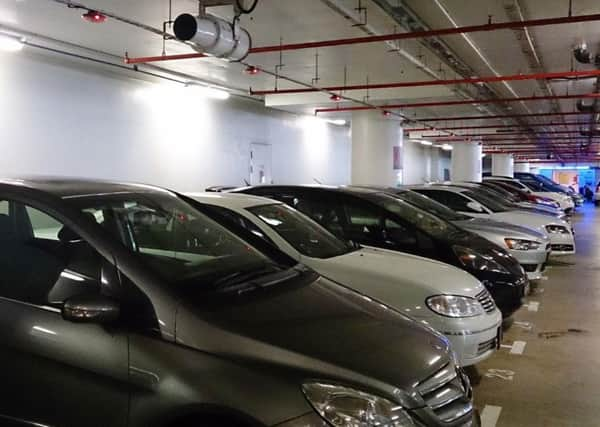Workplace parking tax: How UK’s only levy scheme works


Nottingham’s charge was introduced in 2012. The levy was increased gradually for the first few years as the system bedded in and now it goes up each year in line with inflation.
Employers who provide more than ten parking spaces for staff currently have to pay £402 a year per space, about to rise to £415 in April.
Advertisement
Hide AdAdvertisement
Hide AdMany companies and organisations have passed on the cost to staff, so an estimated 50 per cent of spaces are paid for by employees.
There are some exemptions – emergency services, frontline NHS staff and Blue Badge holders.
The levy brings in about £10 million a year – a total of £53m since 2012, which has paid for an extension to Nottingham’s tram route and a revamp of the railway station as a hub for buses, trams and trains.
There has also been a 15 per cent rise in public transport use, a nine per cent decline in traffic and a 33 per cent reduction in carbon emissions.
Advertisement
Hide AdAdvertisement
Hide AdThe Nottingham scheme costs around £500,000 per year to operate – equivalent to about five per cent of the revenue raised.
The power for councils to impose a workplace parking levy was put in place by the Transport Act 2000. It works through the local authority setting up a licensing scheme.
The owners of premises must apply to their local authority for a licence to park up to a maximum number of vehicles (licensed units) and pay the appropriate sum based on the charge per unit.
But councils must issue the licence for the number of units requested: they cannot use it as a way to control the number of parking spaces provided.
Advertisement
Hide AdAdvertisement
Hide AdCouncils could choose to vary the charges according to different days or times of day, different parts of the area, different classes of motor vehicles or different numbers of licensed units. For example, a council would be able to choose to apply the levy to parking during normal office hours on weekdays or to charge different rates for two-wheeled vehicles
East Midlands Chamber of Commerce originally opposed the Nottingham, but is now reported to be neutral on the issue, saying employers accept the levy as a cost of doing business.
Chamber policy director Chris Hobson said: “Now the tram’s in place it’s undoubtedly beneficial for the areas served, although there are still some areas that feel they have lost business as a result.”
It also seems not to have been politically damaging – the Labour administration in Nottingham has been re-elected with an increased number of seats since the charge came in.
